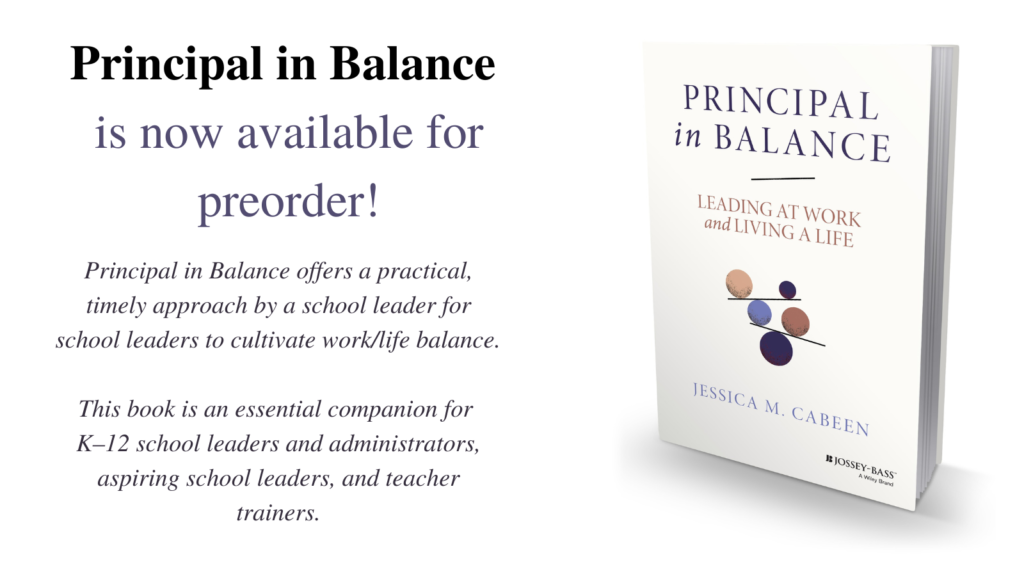Got a minute?
The three words that used to make me cringe. Seriously when someone asks that of you-have you ever timed it to see if the question/problem/statement really does take 60 actual seconds?
As a school leader you can feel the pressure of being on all the time. The problem with that mindset is that if you are always on, you have no time to self-regulate, recalibrate or get ready for the next thing that comes at you.
Gentle Reminder: Selfcare is not selfish.
If we want to take a stand as school leaders, change the status-quo, and reshape the narrative of what we do and how we do it, we have to start taking better care of ourselves. I am a much better leader at school when I take specific actions to take care of myself at home. Below are a few ways to start to make changes for yourself that will pay off in many aspects of your day.
Start Your Day for Yourself.
True story: I used to start my day checking in at work. Yes, my alarm would go off and I would go right into my email.
When you don’t set boundaries for yourself, you are breaking your own ability to regulate the bandwidth for your day. The hard reset for me meant I needed to create a series of habits to help me reset my time in the day (and space in my brain) for work, and life.
Since 2016 I have had the same morning routine:
- Bible Study/Devotional
- Journal
- Exercise
……then go to work.
And while when you stack all the habits above it is more than five minutes, what if you challenged yourself to start your day for yourself sans email, social media, or other work tasks?
Put Away Your Phone.
Be careful your phone doesn’t turn into your best friend.
If you feel more like Pavlov’s dog than a person with their own ability to self-regulate when you hear your phone’s notifications….maybe that is a sign to shut them all off.
I have eliminated all notifications on my phone besides texts and calls from my family. Work email is for computers and I still use in-box zero strategies and scheduled time during the day to check it.
Try this…..when you are out and about in classrooms, leave your phone in your office. When you are not tied to your phone you might find it easier to reconnect with people in real life.
Take the Detour.
Take the path less traveled, it is worth it.
You just finished the hardest conversation of your week, month, or year. A routine meeting took a hard turn when you found out some heartbreaking news about a staff member or their family. A student just had a major meltdown in your office, a staff member’s frustration leaked out in words or actions in your office.
And now you have 5 minutes to get to a meeting with your boss.
In the past I would have taken that five minutes to finish a few emails, make a quick phone call, or do anything to stuff the emotional toll the prior interaction had on me. That behavior of stuffing, ignoring, or pretending I could push past the emotional toll caring for others can have is just plain unhealthy. But now, I get up and go for a walk.
Physical activity is the single most efficient strategy for completing the stress response cycle.
For me, getting up and changing my environment, getting physical movement, and going out and seeing students is the reset I need to let the stress of the previous moment be released before I move on to the next thing.
Say No.
When you say yes to everything, you do nothing well.
As a leader, we can be really good at setting and protecting the boundaries of those we serve, but at times that comes at the cost of sacrificing yourself.
Saying no takes under five seconds. Saying no gives you back bandwidth in your day by setting boundaries with your time. Saying no to everything means you can really focus on doing a few things well.
My friends, let’s stop being May tired in the month of October. Trying a few of these strategies and giving yourself permission to take five minutes for yourself might mean by November you are ready to give yourself 10, 20 or a full hour for yourself.
When you live well, you lead well.
Jessica




0 Comments